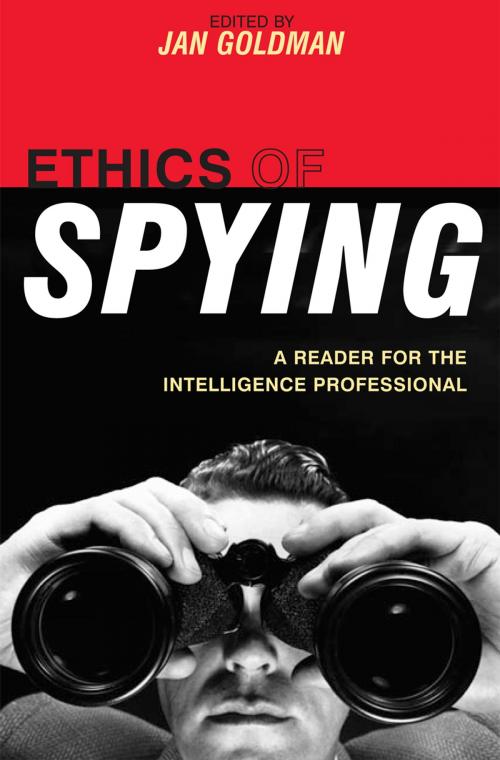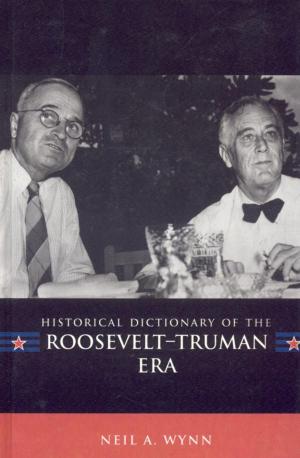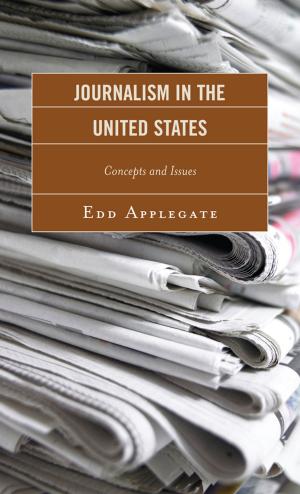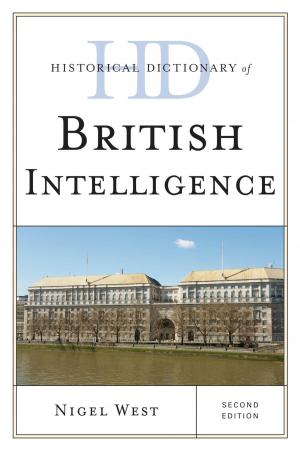Ethics of Spying
A Reader for the Intelligence Professional
Nonfiction, Religion & Spirituality, Philosophy, Ethics & Moral Philosophy, Social & Cultural Studies, Political Science| Author: | Joel H. Rosenthal, J E. Drexel Godfrey, R V. Jones, Arthur S. Hulnick, David W. Mattausch, Kent Pekel, Tony Pfaff, John P. Langan, John B. Chomeau, Anne C. Rudolph, Michael Skerker, Robert M. Gates, Veteran Intelligence Professionals for Sanity, Andrew Wilkie, James Ernest Roscoe, Lincoln P. Bloomfield Jr, Charles R. Beitz, David L. Perry, James A. Barry, Loch K. Johnson, Jean Maria Arrigo, Roger Homan, Martin Bulmer, David Price, Linda Trevino, Gary Weaver, Darren Charters, Fritz H. Allhoff, Professor of Philosophy, Western Michigan University | ISBN: | 9780810882201 |
| Publisher: | Scarecrow Press | Publication: | December 14, 2005 |
| Imprint: | Scarecrow Press | Language: | English |
| Author: | Joel H. Rosenthal, J E. Drexel Godfrey, R V. Jones, Arthur S. Hulnick, David W. Mattausch, Kent Pekel, Tony Pfaff, John P. Langan, John B. Chomeau, Anne C. Rudolph, Michael Skerker, Robert M. Gates, Veteran Intelligence Professionals for Sanity, Andrew Wilkie, James Ernest Roscoe, Lincoln P. Bloomfield Jr, Charles R. Beitz, David L. Perry, James A. Barry, Loch K. Johnson, Jean Maria Arrigo, Roger Homan, Martin Bulmer, David Price, Linda Trevino, Gary Weaver, Darren Charters, Fritz H. Allhoff, Professor of Philosophy, Western Michigan University |
| ISBN: | 9780810882201 |
| Publisher: | Scarecrow Press |
| Publication: | December 14, 2005 |
| Imprint: | Scarecrow Press |
| Language: | English |
Intelligence professionals are employees of the government working in a business that some would consider unethical_the business of spying. This book looks at the dilemmas that exist when one is asked to perform a civil service that is in conflict with what that individual believes to be 'ethical.' This is the first book to offer the best essays, articles, and speeches on ethics and intelligence that demonstrate the complex moral dilemmas in intelligence collection, analysis, and operations that confront government employees. Some are recently declassified and never before published, and all are written by authors whose backgrounds are as varied as their insights, including Robert M. Gates, former Director of the Central Intelligence Agency; John P. Langan, the Joseph Cardinal Bernardin Professor of Catholic Social Thought at the Kennedy Institute of Ethics, Georgetown University; and Loch K. Johnson, Regents Professor of Political Science at the University of Georgia and recipient of the Owens Award for contributions to the understanding of U.S. intelligence activities. To the intelligence professional, this is a valuable collection of literature for building an ethical code that is not dependent on any specific agency, department, or country. Managers, supervisors, and employees of all levels should read this book. Creating the foundation for the study of ethics and intelligence by filling in the gap between warfare and philosophy, Ethics of Spying makes the statement that the intelligence professional has ethics.
Intelligence professionals are employees of the government working in a business that some would consider unethical_the business of spying. This book looks at the dilemmas that exist when one is asked to perform a civil service that is in conflict with what that individual believes to be 'ethical.' This is the first book to offer the best essays, articles, and speeches on ethics and intelligence that demonstrate the complex moral dilemmas in intelligence collection, analysis, and operations that confront government employees. Some are recently declassified and never before published, and all are written by authors whose backgrounds are as varied as their insights, including Robert M. Gates, former Director of the Central Intelligence Agency; John P. Langan, the Joseph Cardinal Bernardin Professor of Catholic Social Thought at the Kennedy Institute of Ethics, Georgetown University; and Loch K. Johnson, Regents Professor of Political Science at the University of Georgia and recipient of the Owens Award for contributions to the understanding of U.S. intelligence activities. To the intelligence professional, this is a valuable collection of literature for building an ethical code that is not dependent on any specific agency, department, or country. Managers, supervisors, and employees of all levels should read this book. Creating the foundation for the study of ethics and intelligence by filling in the gap between warfare and philosophy, Ethics of Spying makes the statement that the intelligence professional has ethics.















